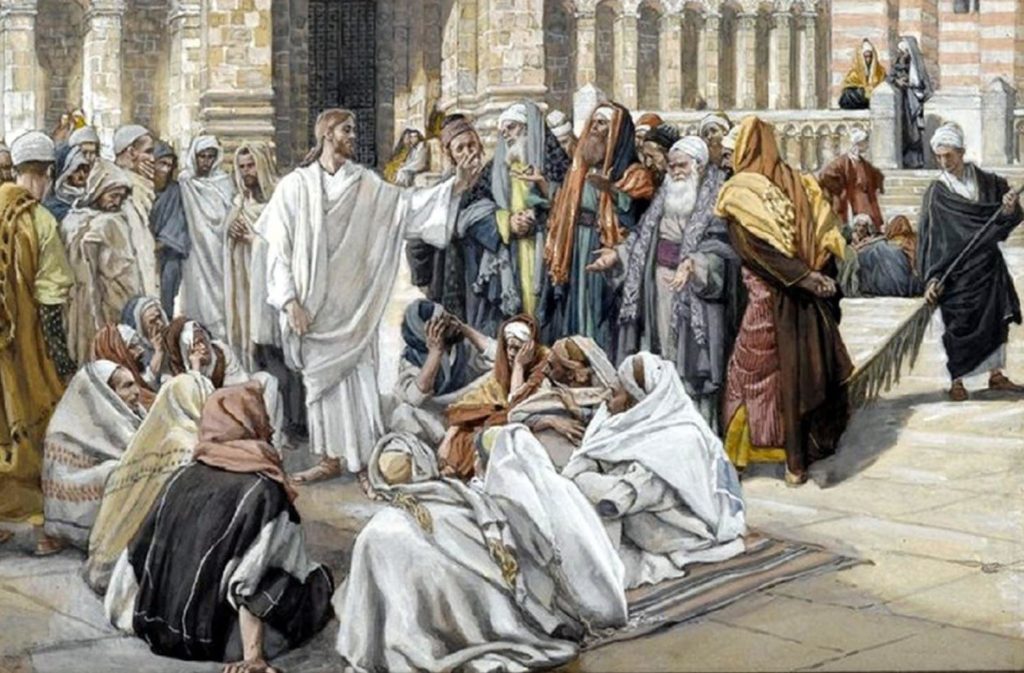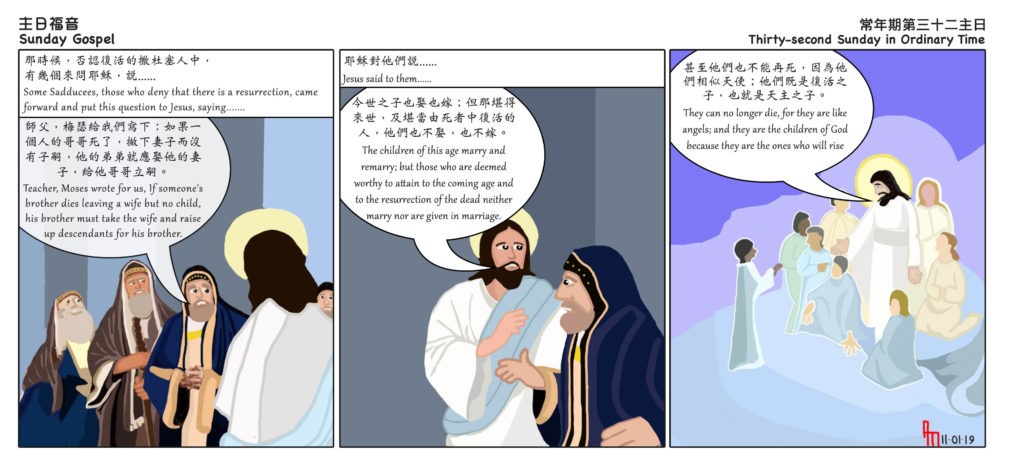Luke 20:27-38
– Fr Fernando Armellini SCJ
Claretian Publications, Macau
While the Pharisees believed in the resurrection, the Sadducees declared themselves skeptics since the Torah did not speak about resurrection. Moreover, with the money at their disposal, they were able to enjoy paradise in this world and no one felt any need to dream of one in the afterlife.
But Jesus understands resurrection so radically different from the Pharisees. He took the floor and articulates his answer.
It would make no sense to die and then return to the same body, the same life. Life with God is a completely new condition: when introduced into it, a person, while maintaining his own identity, becomes a different being, immortal, equal to the angels of God.
Behind certain statements, certain prayers, certain questions of many Christians today there still lurks, unfortunately, an image of the “resurrection of the dead” similar to that of the Pharisees. The resurrection mentioned by Jesus—the one that puts man in common with the angels of God—is completely different. For Jesus, a person lives on earth as a gestation. He prepares for a new birth after which there will be no other because the world he will enter will be final. In it there will not be any form of death.
Like the fetus in the mother‘s womb that cannot imagine the world that awaits him, even so, a person is not able to imagine how life will be with God. It’s a mystery that is not revealed, not because the Lord wishes to increase the suspense and surprise, but simply because our mind is not able to understand it. “A perishable body is a burden for the soul and our tent of clay weighs down the active mind. We are barely able to know the things of earth, who then may hope to understand heavenly things?” (Wis 9:15-16)
We can approach these sublime and ineffable reality only through faith, believing that those things that no eye has seen, no ear has heard, nor any mind fathomed, God has prepared for those who love him (1 Cor 2:9). Instead of inquiring about what we are not able to understand, it is better to dwell on the certainties that the resurrection of Christ offers: in particular the fact that no two lives exist—the present and the future—but one life that continues under two completely different forms.



 Follow
Follow


